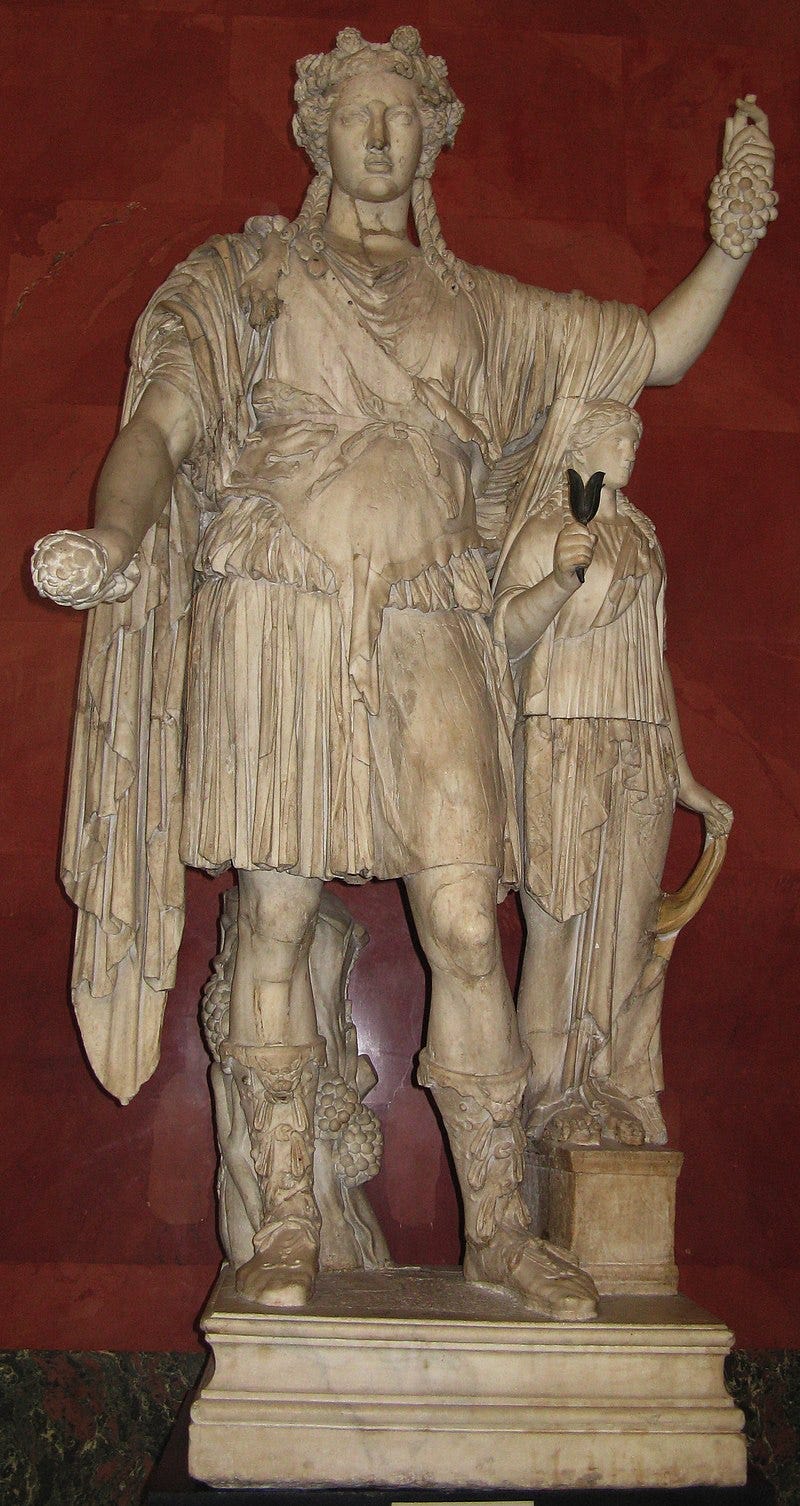Real Greek Myths
“Nothing in our own culture compares to this—nothing is embraced by all of us with the same fervor and fidelity with which the Greeks embraced their myths.” – Sarah Iles Johnston
I write this after finishing Netflix’s newest series, Kaos. Kaos is described as “a darkly comedic and contemporary re-imagining of Greek mythology, exploring themes of gender politics, power and life in the underworld. Six humans learn that they are component parts of an ancient prophecy.”
This post does not directly deal with the show itself; I will discuss it later. At this moment, I want to pay attention to the myth itself. Retellings of Greek Myths are popular right now, a trend that has been gaining momentum for some years. Interestingly, a trend within the realm of fiction has corresponded with an uptick in interest in Greek polytheism, which should be looked at closely.
This post is inspired by some online comments connected to the show Kao. I saw a comment by someone referring to people upset about how Kaos does not live up to the real myths or that Kaos diverges drastically from the real myths. The poster took the position that there were no “real” myths – that the myths we have are the ones we have because these are the ones someone decided to write down. There were other people online thinking along the same lines that while Kaos differs from ancient myths, the ancient myths vary from one another.
I find it upsetting that it has to be said - Kaos, along with the other modern retellings of Greek myths (Madeline Miller’s Circe, Jennifer Saint’s Ariadne), are not part of the same tradition of Greek mythology proper. To put Madeline Miller’s Circe in the same group as Homer’s Odessey is a mistake. While the latter is purely created for entertainment, the former are the “real” myths because they are the myths of a polytheistic culture. They are the stories that make sense in their original context for and by the people of said polytheistic society, and, importantly, their philosophies and religious mysteries.
Mythology differs from fairytales and fables, which many people need clarification on because they are often mixed today as fanciful stories. Disney does not help this issue when it puts Hercules alongside other characters such as Sleeping Beauty and the Little Mermaid; the general public will think of Hercules along the lines of fairytales. Hercules was worshipped in ancient Greece. Did Sleeping Beauty have a religious cult? The Spartans understood themselves to be the descendants of Hercules. I do not recall people claiming to be descendants of Ariel (Little Mermaid).
This little comparison highlights one of the features of myth for the Greeks, its role in identity and religious cult. In the broader definition, myths depict and define the roles of Gods and heroes while also offering explanations for rituals, demonstrating proper or improper behavior, and providing insights into human actions and the nature of the universe. Myths also played an important role in the identity of the Greeks. Sarah Iles Johnston expresses it well in her book Gods and Mortals: “[n]othing in our own culture compares to this—nothing is embraced by all of us with the same fervor and fidelity with which the Greeks embraced their myths.”
As a Greek, when I read people online asking for a “spicy retelling of the myth of Persephone and Hades,” I shake my head because the wilder society does not fully know the value and purpose of myth. For so many people, they are simply stories and, in some cases like this, material to be played with for a spicy romance.
Persephone is a central Goddess in the Eleusinian Mysteries along with her mother, Demeter. In the Platonist view, the myth of her abduction by Hades is seen as a metaphor for the soul’s descent into the body. Damascius, the last head of the Athenian Academy, in his commentary on Plato’s Phaedo writes concerning the soul that “Like Kore (Persphone), the soul descends into genesis, like Dionysus she is scattered by generation, like Prometheus and the Titans she is chained to the body. She frees herself by acquiring the strength of Hercules, gathers herself together through the help of Apollo and of Athena the Savior, i.e by truly purifying philosophy, and she elevates herself to the causes of her being with Demeter.”
These are some of the things I have been thinking about lately. I will pick this up again later, perhaps discussing Kaos itself and what I like about retellings.





Great article. I look forward to hearing more about your opinion on retellings as a fellow polytheist. (Sorry if I'm a fly in your ear, I don't know how to engage with anything quietly.)